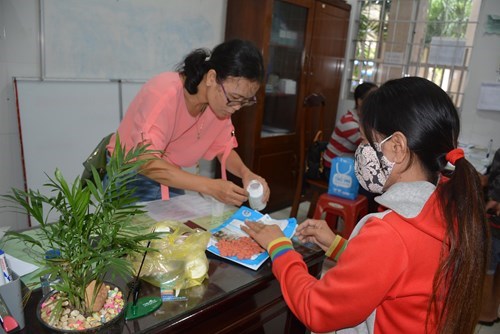Huge demand for ARV
ARV is very important for those living with HIV. The drug not only helps people living with HIV lead a healthy life and reduces the stigma of the condition, it also reduces dangers from opportunistic infection and, according to the US CDC (Centers for Disease Control) in their bulletin of last September, when virally suppressed using ARV and given the status undetectable viral load, there is “effectively no risk of transmitting HIV to others”, regardless of whether other preventative methods (like condoms) are used. This is a monumental and far-reaching step in the eradication of HIV. This is also the right approach when the financial resources to fund ARV as these funds come from is extracted from the health insurance fund. Therefore, ARV therapy is considered a positive prevention solution. It should be noted that people living with HIV have to use this medicine every day and indefinitely so that the demand and expense remains high.
    |
 |
|
People living with HIV/AIDS receive ARV |
According to the Department of HIV/AIDS Prevention under the Ministry of Health, before 2015, ARV in Vietnam came from sponsorship from international organizations, including te U.S. President's Emergency Plan for AIDS Relief (PEPFAR), the Global Fund to Fight AIDS, Tuberculosis and Malaria, and the Clinton Foundation. To reduce the price of the drug and ensure its quality, these projects usually procure at global levels then transfer the drug to the beneficiary countries (rather than sponsor ARV drugs directly in or to the target countries which need it).
Ensure supply
Since 2015, to ensure ARV supply to AIDS patients when the sponsorship level of the drugs are being reduced, the Government tasked the Ministry of Health to buy part of the ARV from the domestic budget to compensate the cut in sponsored amount. The Department of HIV/AIDS Prevention started opening the bidding to procure the medicine on the principle that the procured ARV drugs must meet the standards set by the World Health Organization with the same quality of the sponsored ones.
Accordingly, in 2016, for the first bidding, the Department of HIV/AIDS Prevention bought 6,410,940 three in one pills (a mixture of three kinds of medicine of Lamivudine, Tenofovir, and Efavirenz, in one pill) with a price of 7,299 VND per pill (including 5% VAT), an equivalence of 0.3095 USD/pill of the then exchange rate of 22,457 VND per 1 USD.
The price that Vietnam bought for the same kind of drug was 16.6% cheaper than that from the Global Fund to Fight AIDS, Tuberculosis and Malaria, and 17.8% cheaper than that from PEPFAR.
In the second bidding, Vietnam bought 3,079,080 three in one pills with the price of 0.268 USD per pill, 3.63 % cheaper than that from PEPFAR and 1.33% cheaper than that from the Global Fund to Fight AIDS, Tuberculosis and Malaria.
The successful procurement of ARV drugs at a good price is an important step for Vietnam to actively provide ARV drugs to replace those previously sourced from international sponsors, ensuring sustainability of the HIV/AIDS prevention program.
Dr. Kato Masaya, an expert of the World Health Organization in Vietnam, said that according to WHO, Vietnam is a bright example in the region for ARV treatment. Particularly, Vietnam is a pioneer in implementing WHO’s recommendations in treatment methodology and general approach so that people living with HIV/AIDS can easily access ARV.
Recently, in a ceremony to launch the national action month and international day to prevent AIDS in 2017, Marie-Odile Emond, Country Director of UNAIDS in Vietnam highly valued Vietnam’s efforts in preventing and fighting against HIV/AIDS. 2017 is the ninth consecutive year HIV/AIDS in Vietnam reduced in three categories of new HIV infected cases, number of AIDS patients, and number of death due to AIDS.
Vietnam comprehensively and effectively implemented intervention services on prevention, support, and treatment for people living with HIV/AIDS; applying many of the latest initiatives to HIV/AIDS prevention which are hailed by the international community.
Vietnam has recorded important milestones in a ambitious plan of terminating HIV/AIDS in the country by 2030.
Translated by Nam Long